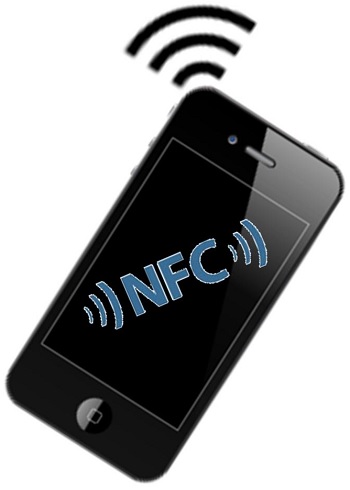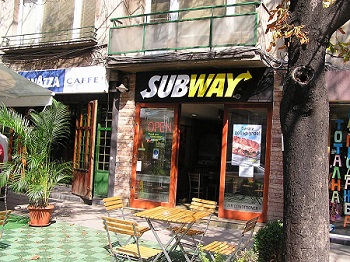Lucy |
September 19, 2014
NFC-enabled iPhone 6 will only work with the Apple Pay platform
Apple has some bad news about the iPhone 6 and Apple Pay. The famed technology company recently revealed its new device and mobile payments service, both of which have been well received by consumers. The iPhone 6 garnered praise for its inclusion of NFC technology, something that iOS users have been wanting for some time. The NFC-enabled iPhone will allow consumers to make use of a variety of mobile commerce platforms, or would have done if not for Apple Pay.
Apple is closing off the iPhone’s NFC chip to developers during the initial launch of the device
The NFC chip embedded in the iPhone 6 will only work with the Apple Pay platform. Apple is opting to keep the NFC chip closed off from developers during the initial launch of its new device and service. This is similar to what Apple did with its Touch ID biometric sensor that was introduced with its previous iteration of the iPhone. Though Apple has declined to comment on its future use of NFC technology, sources have confirmed that the company’s use of NFC will currently be restricted to Apple Pay.
NFC technology continues to make up the backbone of mobile commerce
 NFC technology has made up much of the infrastructure that supports mobile payments. This technology allows for digital information to be transmitted over short distances, which is ideal for mobile commerce solutions. The problem with NFC-based systems is that they can only be accessed using NFC-based devices. So, a device that is not equipped with an NFC chip cannot use a mobile commerce solution that makes use of NFC technology.
NFC technology has made up much of the infrastructure that supports mobile payments. This technology allows for digital information to be transmitted over short distances, which is ideal for mobile commerce solutions. The problem with NFC-based systems is that they can only be accessed using NFC-based devices. So, a device that is not equipped with an NFC chip cannot use a mobile commerce solution that makes use of NFC technology.
Apple has a troubled history with NFC technology
Apple has had some concerns regarding the security of NFC technology in the past. Some platforms have fallen prey to malicious attracts, some of which have exploited NFC in a way to gain access to consumer financial information. Apple may still be leery of this technology, which is why it is limiting its use of NFC to the Apple Pay platform.
This deal between the sandwich chain and the service formerly known as Isis will rule out Apple Pay for the moment.
Subway, the sandwich chain, is now teaming up with Softcard in order to provide customers with the opportunity to use mobile payments to pay for their meals instead of a traditional credit or debit card.
The announcement stated that the NFC technology based mobile wallet will be usable at Subway next month.
As of October 1, Softcard mobile payments will be an accepted form of transaction at Subway. This joint venture among Verizon Wireless, T-Mobile USA, and AT&T Mobility was originally called Isis Wallet, but recently rebranded itself in order to place some distance between its name and the militant group that is currently terrorizing parts of the Middle East. This app is now supported by over 80 different mobile devices and is preloaded on over 30 of them.
The Softcard wallet will let customers choose their smartphone as a payment method.
 All that customers need to do to use this mobile payments service through their NFC enabled smartphone is to tap the terminal at the Subway restaurant. This is now being rolled out after having completed a pilot program last year. Now, it will be available in over 26,000 locations of the restaurant found throughout the United States.
All that customers need to do to use this mobile payments service through their NFC enabled smartphone is to tap the terminal at the Subway restaurant. This is now being rolled out after having completed a pilot program last year. Now, it will be available in over 26,000 locations of the restaurant found throughout the United States.
That said, despite the fact that the iPhone 6 now finally has NFC technology built into it, its users will still need to continue to use traditional transaction methods, at least for the next little while. The reason is that the Apple Pay service has been launched by that device maker and the iPhone 6 will be restricted exclusively to that service, at least for the first year after its release. Therefore, despite the fact that the technology is compatible, the wallet formerly known as Isis will not be available for Apple smartphone users.
That said, Michael Abbot, the CEO of Softcard, has stated in a recent blog post that the company is “actively working with Apple” to make that mobile wallet compatible with the iPhone 6 at some point next year.
 NFC technology has made up much of the infrastructure that supports mobile payments. This technology allows for digital information to be transmitted over short distances, which is ideal for mobile commerce solutions. The problem with NFC-based systems is that they can only be accessed using NFC-based devices. So, a device that is not equipped with an NFC chip cannot use a mobile commerce solution that makes use of NFC technology.
NFC technology has made up much of the infrastructure that supports mobile payments. This technology allows for digital information to be transmitted over short distances, which is ideal for mobile commerce solutions. The problem with NFC-based systems is that they can only be accessed using NFC-based devices. So, a device that is not equipped with an NFC chip cannot use a mobile commerce solution that makes use of NFC technology.
 All that customers need to do to use this mobile payments service through their NFC enabled smartphone is to tap the terminal at the Subway restaurant. This is now being rolled out after having completed a pilot program last year. Now, it will be available in over 26,000 locations of the restaurant found throughout the United States.
All that customers need to do to use this mobile payments service through their NFC enabled smartphone is to tap the terminal at the Subway restaurant. This is now being rolled out after having completed a pilot program last year. Now, it will be available in over 26,000 locations of the restaurant found throughout the United States.